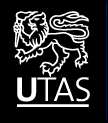Bestiolina similis
Sewell (1914)
Download a fact sheet for Bestiolina similis (PDF 351KB)
Taxonomy
| Phylum | Arthropoda |
| Subphylum | Crustacea |
| Class | Maxillopoda |
| Subclass | Copepoda |
| Order | Calanoida |
| Family | Paracalanidae |
| Genus | Bestiolina |
| Species | similis |
Size
- Female: 0.72 - 0.81 mm
- Male: 0.80 mm
Distinguishing characteristics
- Female P5 rudimentary and knob-like
- Male P5 rudimentary on right and elongate on left
Male
- Swimming legs as for female
- P5 has swollen coxa, and 4 more segments
- Terminal P5 segment has 2 unequal spines, penultimate segment with laterodistal spine
Female
- A1 extends as far as caudal rami, terminal segments elongate, no transverse row of spinules on segments 1-7
- Rostral filaments long and slender
- Last pedigerous somite without spinules
- Posterior surface of exopod segment 2 on P2-4 without spines
Distribution
- Epipelagic
- Common in inshore waters and estuaries of the tropics
- Pacific and Indian Oceans, not the Atlantic
Ecology
- Can produce up to 50 eggs female-1 day-1
- Eggs released directly into water
- Naupliar development complete in < 4 days
- Important prey for larval fish
- Easily maintained in culture
References
- Boxshall, G. A. and S. H. Halsey (2004). "An introduction to copepod diversity." Ray Society Publications 166: i-xv, 1-966.
- Bradford-Grieve, J. M. (1994). The marine fauna of New Zealand: Pelagic Copepoda: Megacalanidae, Calanidae, Paracalanidae, Mecynoceridae, Eucalanidae, Spinocalanidae, Clausocalanidae. National Institue of Water and Atmospheric Research, Wellington, New Zealand.
- Chew, L. L. and Chong V. C., (2011). "Copepod community structure and abundance in a tropical mangrove estuary, with comparisons to coastal waters." Hydrobiologia 666(1): 127-143.
- McKinnon & Klumpp (1998)
- McKinnon et al. (2003)
- Razouls C., de Bovée F., Kouwenberg J. et Desreumaux N., 2005-2009. - Diversity and Geographic Distribution of Marine Planktonic Copepods. Available at http://copepodes.obs-banyuls.fr/en
- Sampey, A., McKinnon A. D., et al. (2007). "Glimpse into guts: overview of the feeding of larvae of tropical shorefishes." Marine ecology. Progress series (Halstenbek) 339: 243-257.

